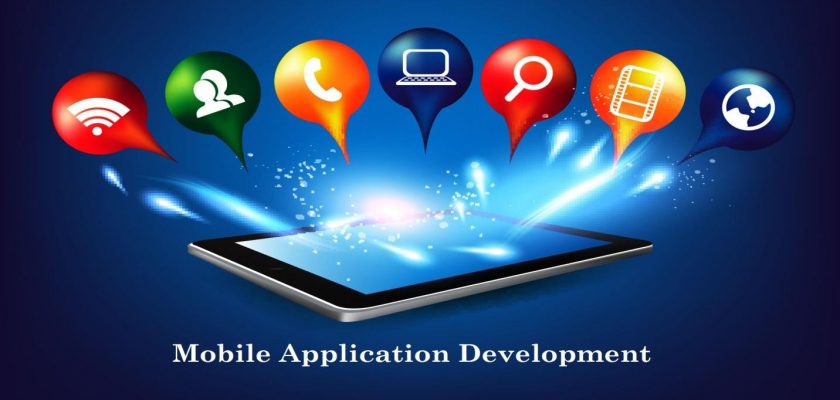The development of mobile applications is one of the most obstinately growing fields in the world. Earlier, mobile phones were a privilege enjoyed only by the wealthy and the elite, which over the years has gone through a technological revolution and today, the activities of people from the whole world depend on these mere devices and their outstanding applications.
The technology has also passed the hurdles of distance, language, and social echelon. Today, there are more than a billion smartphones, housing around 179 billion mobile app downloads each year.
The escalating and the ever-increasing sales of smartphones are lucrative for the mobile app market, progressing further each passing year. It is now become a necessity and has connected people to the fast pace of the internet. The business of every kind now relies on technology to boost its revenue and link up with its customers. Mobile applications have broken the confines of smartphones and have ventured into smart homes, IoT devices, wearables and so much more.
To continue with the cutting edge and innovative ideas, the app developers continue to thrive in the market with the latest trends and prospects. The advanced technology, along with smart business strategies and designs, propels the development of successful mobile applications.
Let’s refer to some trends that will determine the future of mobile application development.
Highlights of Contents
The Wearables
The introduction of Augmented and Virtual Reality has been a game-changer that has opened new dimensions and paths for the tech industries. One of the most successful games in 2016, Pokémon Go, exhibited the potentials of the Augmented Reality development to influence its customers in meaningful ways. To further revamp the AR Technology, it has been integrated with the utility by means of introducing applications that will help you hunt the nearby cafes and restaurants.
Another buzz is Virtual Reality that is taking up the pace and revealing the wonders it can do. Google had set its foundation in 2014, and ever since then the tech industries have been building upon it and have launched their own headsets and other hardware. A few examples of this are FaceBook’s Oculus Rift, Samsung’s Gear VR, Sony’s PlayStation VR, and more.
Progressive Apps and Application Performance Management
With progressive applications, the users can now easily load websites on their websites, with weak and unstable data conditions. Some standard HTML5 components are deployed to have a UX like that of a native app. A regular web application takes the advantage of a mobile app’s core characteristics and features, which results in enhanced user retention without any twists involved in the maintenance of a mobile app. The capabilities of web applications are advancing at a rapid pace, helping in improving the performance with special features.
The diversity of mobile devices and the non-deterministic nature of mobile networks impede the performance of the app testing, but Application Performance Management has improved quality assurance and testing.
The APM tools scuffle to offer real performance benefits across virtual systems. For the future, more and more robust tools for monitoring the resources are being used by the applications that require correlation of the data with eloquent user insights and aligning the performance with business processes.
Enterprise Mobile Management
Enterprise mobile management includes the people, processes, and technology that use mobile computing for smooth business administration. The prime determinants of EMM are security, application as well as financial management. The app security should be taken seriously, though it is taken for granted despite the massive amount of data it holds.
Therefore, applications with built-in security can make a huge and count impact on the app space. EMM also comprises mobile device management, mobile application management, application wrapping, enterprise file synchronization, and sharing. Such tools would grow with time and carry out an array of mobile management needs across all the modern operating systems on PCs, smartphones, and tablets. It basically encompasses on imminent evolution and potion of mobile management, security, and support technologies.
M-Commerce and Android Instant Apps
M-commerce aims to eliminate the need for Debit and Credit cards so that resort people to their mobile phones for purchases. They are applications that will process the transactions without the need for physical cards. Here, the wearables will also accompany these applications, pondering the predictive analysis for mobile payments (Worth Reading: The Sporadic Growth of Mobile Payment Gateways) and gain customer loyalty. The beginning has already been marked with Google Wallet and Apple Pay.
It has not been so long when Google came up with Android Instant Apps that hold their name by enabling Android apps to run instantly. You do not need to download or install these applications on your device; it opens the gateway to a wider range of mobile applications correctly. For instance, if you receive a link, you can open it with a single tap. This way you can utilize the application without downloading it on your device. All this promises a firmer grip on the applications running them as your wish. This will certainly transform the app world.
A Round-Up
It is certain that mobile applications have intertwined our lives and the digital ecosystem inexplicably. For businesses, to soar higher building consumers, these applications have become a necessity as people look forward to solving their tasks just with the touch of a button. The above trends in mobile application development predict the future as the user behavior and the demand are shifting at a lightning speed. Likewise, mobile application development companies need to be versatile and adaptable accordingly.
